In this blog article, we want to explain what a workation is and what is important when planning a workation. We will also provide tips. We also show the benefits of a workation for teamwork and the company. We then show how it fits into the corporate culture.
Finally, there is also a personal experience report from the plant values team. We hope you enjoy reading it!
Content of the article:
- The term workation explained
- What are the goals of a workation?
- What advantages does a Workation offer companies?
- How to plan a good workation: Our tips for a successful workation
- Consider location and equipment when planning the workation
- Workation as part of an active corporate culture
- Workation as a potential for conflict - critical reflection
- A few don'ts for workation planning
- Our workation: A field report
Workation: Where work and holiday meet...
Workation consists of from the English words Work and Vacation. Put together the workation, whereby the notation with C is also possible, i.e. workcation.
Workation (or workcation) describes the period of a few days to weeks in which you are travelling alone or in a team. This involves consciously changing the environment in order to work productively but also to switch to a more balanced and, above all, communal relaxation.
The The emphasis here is on workthe work. It is therefore No substitute for holidays or days off. It is as a change from everyday working life to understand.
Not only teams in companies can take part in a workation, but also solo self-employed people or individuals. Typically, this would involve writing a thesis, pursuing an art project or completing a business assignment. In this way, the working day can be shifted to a more pleasant environment. The concept is particularly interesting for people with a high degree of flexibility who have also established mobile working. This ties in with work-life balance considerations.
In this article, we refer to Workation for teams. I.e. colleagues, members of an organisation or a group of like-minded people from different companies. Typical groups for a workation could be an entire startup team or all organisational members of a small company. For SMEs, larger companies or corporations, it is more likely to be a department, a working group or the management team.

Knowledge and methods on sustainability in your mailbox
Every two months, we send you our newsletter, which summarises best practices, new developments and practical methods.
For workation planning: Set goals
Workations can have different orientations, depending on the objective. Typical topics for a workation are
- Work on strategic topics
- Work on the vision and mission of the companywhich is directly related to corporate values and the purpose of the company
- Professional training (e.g. learning the Basics of sustainabilityt, programming or new technology applications)
- Methodological training (e.g. practising moderation techniques or the application of Sustainable Design Thinking in workshops).
- common Work on a project
- Team building to strengthen the team spirit
Several topics can also be combined. The individual sessions should then be organised accordingly so that strategy is discussed, participants receive specialist input and also work on team building.
On the other hand, the workcation can have its own motto, e.g. "Sustainability throughout the company" or "Establish a culture of error". The destination and the selected leisure activities are then based on this. In this way, a holistic view of a focal topic is achieved.
Advantages of a Workation
The advantage is that are consciously given time and space to deal with the chosen topics. This allows participants to work outside of a busy schedule and everyday distractions such as phone calls and emails, as well as outside of their usual working environment. act impartially. This frees you from familiar and distracting everyday routines. Perfect for devoting yourself to new content with a free mind. Or to gain a distanced view of the big picture.
The management can therefore also Set topics consciously. As a result, these receive a great deal of attention, the management can thus emphasise their priority in the company.
The opportunity to think about new information again is a great added value. The Content can be processed and categorised. This will give rise to new ideas. It can be decided individually whether to reflect alone on the beach or talk about it with colleagues on a walk in the forest. It is important that sufficient time and space is allowed for this in the planning.
Exercise in the fresh air is good for you. The oxygen-flooded brain can then devote itself to the next work session with fresh energy and full attention.
The team members should be given the opportunity to outside the work context. It is particularly useful to learn more about the individual people along the way. For example, why they are in the company, what their life dreams are, what their daily motivation is. By getting to know each other, the team grows closer together. You feel more personally connected to your colleagues. It also makes it easier to respond to the idiosyncrasies of other characters or to show understanding when difficulties arise. It helps to know the background, e.g. that a team member is currently experiencing family problems or is volunteering for an issue close to their heart alongside their work.
Our tips for good workation planning
Basically, there are many different ways to plan a workation. Whether you plan one day as a leisure day and the next as a working day or whether you organise the day half with work and half with leisure is ultimately not decisive. However, it is important that there is enough time for relaxation and activities outside the work context. This should be planned in right from the start! Otherwise, you could just as easily go to another office and work through a tight schedule there.
We have summarised here what else is important when planning a tip-top workation:
For the preparation of the workation:
- Long-term planning and decision-making optionsso that everyone can agree on a suitable date and location. The lead time is correspondingly important in order to be able to schedule other work in the long term or, if necessary, to prepare inputs, workshops or feedback in a well-founded manner.
- Think globally, travel regionally: Travelling as a group by train is a good option for the workation. There are already many workation offers in Germany. It also saves travelling time and costs compared to flights or long-distance destinations - and it's better for the climate anyway.
- Coordinate budget and times with all partiesClarify which costs will be covered by whom and how many days should be blocked in the long-term planning. It must also be clearly communicated by when feedback and firm commitments are required.
- Create an agenda togetherAgree on which topics are to be discussed and how much time is required. Clarify who is responsible for the content and methodological preparation. Also plan to give space and keep time free to take up and discuss spontaneous topic requests from the group.
To carry out a workation:
- Plan your journey together, so that there is already time together on the outward journey. We recommend taking the train, as this is the best way to sit together with groups.
- The evening of your arrival is used for check-in and you can immediately First reflection (review) of the last few months be carried out. This may also Critical feedback The feedback may be expressed about the team, the company or individuals, provided that this is done in compliance with agreed rules of conduct. (Here or Here explains)
This has two advantages: The session that may have the most potential for conflict is set right at the beginning in order to resolve possible tensions or address problems. The issues raised can then be considered in further sessions and solutions can be worked on together. - The Use premises and holiday location: Don't just sit in seminar rooms, go outside too! Discussion groups can also be a stopover on a hike, take place around a campfire or on the beach in the sun.
- Leisure activities should give people the opportunity to exchange ideas and get to know each other better. Especially those who otherwise don't have much to do with each other. For this purpose Group activities such as joint hikes, a boat trip or a campfire. Suitable Activities for team building The best ways to create a shared sense of achievement are, for example, joint geocaching, team courses in climbing parks, paddling trips and simply games where you have to work together as a team to solve tasks.
- Instead of ordering catering or planning restaurant visits, small teams can also Cooking or barbecuing together take place. Workation hosts usually have a kitchen or barbecue area ready.
At the end of the workation and afterwards:
- Joint conclusion and reflection of the workation: Typical questions include what the participants take away from the workation and what they would like to see differently next time. This feedback provides valuable tips for the next workation planning.
- Let it take effect: It is exciting for all sides to look back after a few weeks and check what the results and findings of the workation were. And, of course, to see to what extent intentions or goals have been pursued or where there are still obstacles that need to be overcome together.
Plan the location and equipment of the workstation
The workation as a whole, i.e. the location, the rooms with equipment, leisure activities, etc., can be organised independently. This includes finding a holiday flat or hotel room for overnight stays, renting seminar rooms (e.g. in coworking spaces or cultural spaces), procuring the appropriate working materials, ensuring that everyone has the necessary internet connections and booking the necessary facilitators or a training leader. A leisure programme can also be put together individually. This offers maximum flexibility, but also requires a great deal of organisation and coordination.
There are now Complete offers from special coworking spaces. In addition to rooms for collaborative work, moderation and training, they also offer overnight accommodation, barbecue areas and a kitchen for self-catering.
Three examples of workcation programmes are
- the Coconate south of Berlin
- the Cold store Görlitz near Lake Berzdorf
- the project bay directly on the water on the island of Rügen
These locations in particular offer various workstations and group rooms with equipment. A pool of moderators for methodology or experts for specialised topics is often directly available. This means that participants can gain new knowledge or receive methodological training through specialist presentations during the workation. A moderator can be brought in for sessions so that dialogue formats are professionally accompanied.
We are aware that a workation requires company resources in many respects. For example, the costs for larger groups travelling can quickly amount to several thousand euros. Employees are tied up for a few days away from their actual work. At the same time, value creation in the company's core business is paused. In the following section on corporate culture, we explain why it is nevertheless very worthwhile to address the issue.
Workation as part of our corporate culture
In the following we want to Viewing workation in the context of corporate culture. Firstly, which dimensions need to be considered:
Mini-excursion:
- Corporate culture describes the permanent, often informal "rules" and forms of behaviour that are based on values and lived practice.
The spirit of the organisation. - Interacting with this is the Corporate structure, which comprises formal processes, defined hierarchies, decision-making procedures and organisational and operational structures.
The constitution or laws of the organisation - Both the structure and culture of companies have an effect on the Individual level, the individual person in the company. They provide them with orientation and behavioural guidelines. Conversely, the individual as part of the organisation influences structures and culture, can fill them with life or change them (in the long term). A typical observation is that the individual adapts to the surrounding culture and adopts the prescribed behaviours and values. Or they leave the organisation if there is no lasting fit between the corporate culture and the individual.
- The Interaction of the dimensions In a simplified nutshell: If people, structures and corporate culture fit together, they will mutually reinforce each other. The company will find it easier to achieve its goals. Employee motivation remains high in the long term. The organisation's resilience to crises increases, as does its ability to innovate. And identification with goals makes the company permanently attractive to members of the organisation. It can also be more appealing to job seekers. As a result, this means lower recruitment costs, high motivation, more innovation and higher earnings thanks to productive employees.
Back to the Workation:
These can be a fixed element of the corporate structure. By integrating them into the annual planning, resources such as time, budget, internal knowledge resources, etc. are made available. Workation is given a fixed place in the company processes.
In terms of corporate culture, it can be a format to working for each other to learn. Open and critical (but respectful!) interaction can also be practised. This establishes a Healthy discussion culture at eye level. In addition, it is also a Signs of appreciationthat your opinion is heard and that you don't just spend time together in a work context.
On an individual level, people are given the space to further methodological or technical training or to work together on ideas. Everyone can contribute their own views and experience. This means that the Identification with the company increases. The Understanding of goals is sharpened. Ultimately, participants will leave the workation more motivated and focussed.
This means that Workation as a means of establishing and strengthening a positive corporate culture be understood. The workation itself is a structural element. Ideally, it has a positive effect on people. It could be seen as a kind of internal Stakeholder dialogue be understood.
A critical look: Workation has potential for conflict
Finally, we take a critical look at what can go wrong: Serious conflicts between people may become apparent as they are unable to avoid each other after work or are encouraged to speak their honest minds. This can be hurtful. Existing structures may prove to be inadequate or blocking. In addition, people may realise that they do not fit in with the organisation and its goals. This realisation can be highly demotivating.
However, these identified problems can in turn provide motivation to work on solutions. It's better this way than covering up problems in the long term until they explode and cause major damage. The point is that regular formats of feedback, exchange and dialogue at eye level have a preventative effect. Critical developments are uncovered at an early stage(s), which prevents problems from becoming insoluble.
A few don'ts of workation planning:
What is important for Workation to be successful for everyone involved? How can the set goals be pursued and workation become part of a good corporate culture? We have summarised this below:
- Workation is not a holiday.
- It should not just be work in other rooms. It is essential to plan individual leisure activities and sufficient time to relax! There are often enough stressful days and full diaries as it is.
- The agenda should not be dictated without feedback from the participants, but should offer them the opportunity to make their own suggestions.
- Participation should be voluntary. Employees who are unable or unwilling to take part in a workation should be given other opportunities to express their opinion or participate in the development of the company.
- Workation is a great element of a modern and open corporate culture. But it is also just one of several approaches. It is also not a panacea and certainly does not work once.
- A workation should be a contribution to a better corporate culture. However, this should not be at the expense of the environment or society. In the spirit of sustainable tourism, environmentally friendly travel, accommodation, catering and a socially responsible leisure programme can be considered at the planning stage.
If these points are taken into account, then nothing stands in the way of a good workation as part of a positive corporate culture.
In our experience report, we want to share with you how we organised our last workations.
Methods and best practice for sustainability in your mailbox

Best practice: Our personal Workation experience report
The values team plans a workation together once a year.
We plan 2.5 to 4 days in advance, many months in advance, when we let the daily business rest. This means that your enquiries by email or phone will have to wait a little longer for a response - sorry about that!
We combine various topics: Feedback round, strategy questions, annual review and outlook as well as the realignment of our business activities. We draw up the agenda together and everyone can incorporate topics of their choice. The same applies to leisure activities. The only rule: no operational work or discussions on ongoing projects.
We use the workation to look back and reflect. The feedback round is an important part of this. We always place this at the beginning of the agenda. We give constructive feedback on ourselves, team members and the teamwork at plant values. Unpleasant topics and undesirable developments are also brought to the table. We clearly name the problems we have recognised. Sounds tough for a start in a holiday environment, but it brings a lot: once a problem has been identified, we can work on it together and find solutions that work for everyone during the workation days. That really pays off. In the end, we always start the following period more organised and motivated. A bit like a cleansing thunderstorm followed by sunshine again.
Variety between teamwork and joint team activities
It is important to us that intensive work sessions alternate with free time together. This allows individual aspects of the strategy discussion to be discussed again. However, there is also time to simply talk about hobbies, voluntary work, joint plans or other things in the world - and have a lot of fun in the process.
Last year we were in Görlitz. To compensate for our work, we took a guided tour of the Görlitz cold store, cycled to the quarry pond and rounded off the day with a home-brewed beer in the evening.
Last summer we went kayaking on the island of Rügen to let our minds wander. We used long walks along the Baltic Sea to talk about our life's dreams and personal goals for the coming years.

Joint journey by train 
Best sunset on the island of Rügen 
Sport as a balance on the Workation
We have often organised the agenda in such a way that we work together intensively for around four to five hours at the start of the day and then move on to free time. Later, e.g. while sitting on the Baltic Sea beach, we can discuss small topics or individual aspects again in 30 to 60-minute sessions.
Having breakfast together and cooking or barbecuing in the evening are also important components.
Conclusion and after-effects
At the end, we organise a reflection round with the questions: What are our next goals? What did we take away from the workation? How was the journey together? The feedback helps us to consistently plan the next good workation.
The results of the discussions and sessions are continuously recorded in a collaborative protocol. At the end of the workation, this is completed by all participants so that nothing is lost. After a few weeks, at the latest at the next strategy meeting, we can look back and review the results. What has already been implemented? Where can we still support each other to achieve the common goals?
This means that Workation has a lasting effect on us.

Relaxation and peace and quiet as a break from the work sessions at Workation 
Team meetings can be quickly moved outdoors 
plans values Team photo in front of the chalk cliffs on Rügen
Have fun with your workation
Our experience with the concept has been extremely good and we can highly recommend it. We hope that our tips will give you new ideas and inspiration and that we will soon receive a (digital) postcard from Workation from your team!

Are you planning the next steps towards sustainability?
Ask me for a free information meeting.
I am ready with advice and pleasure.
Steve Grundig
Sustainability in human resources and corporate culture

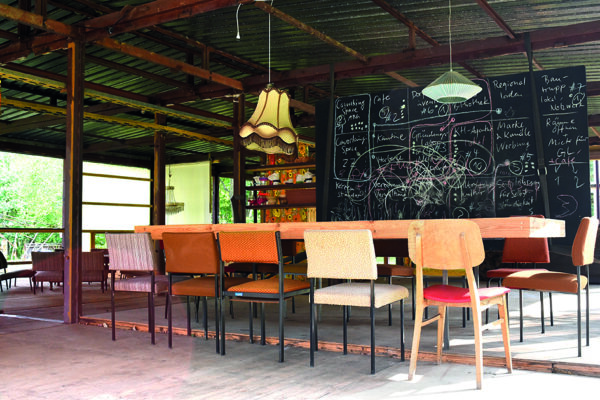
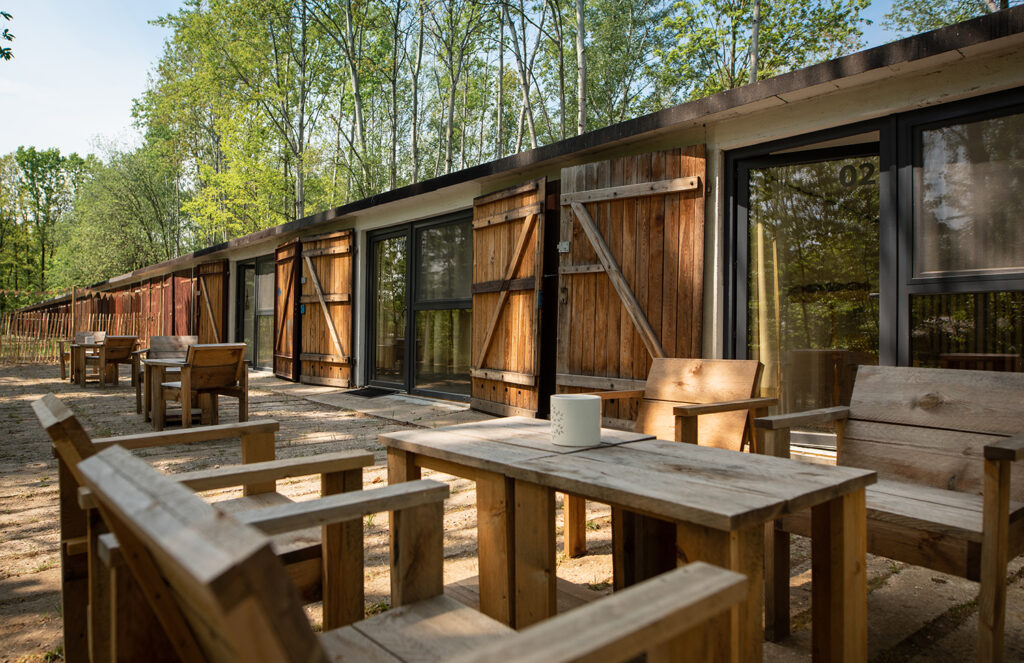

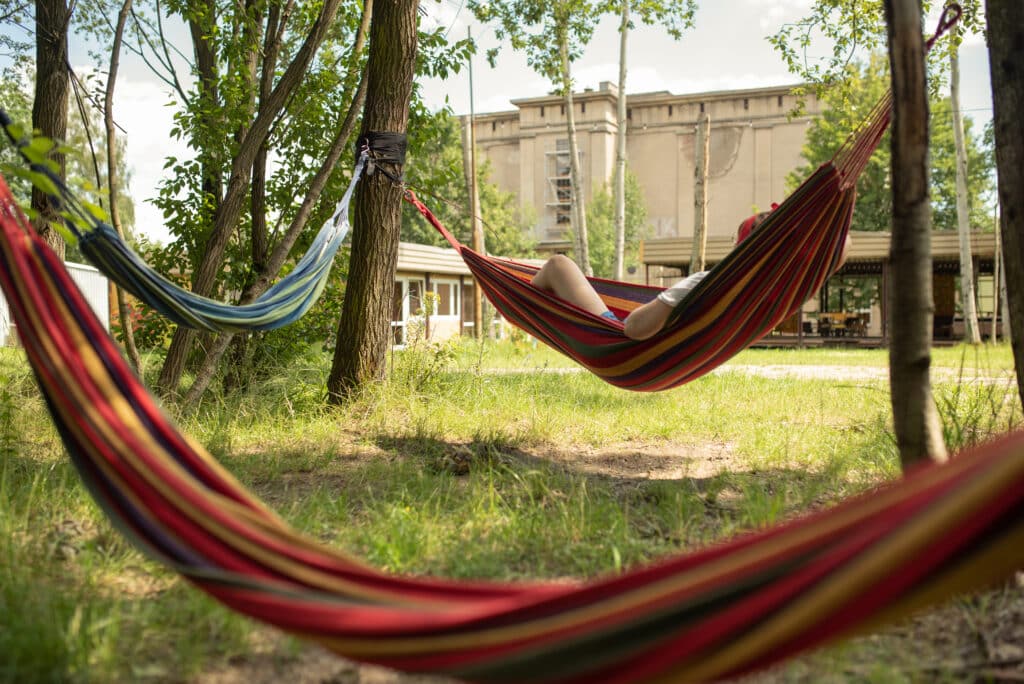



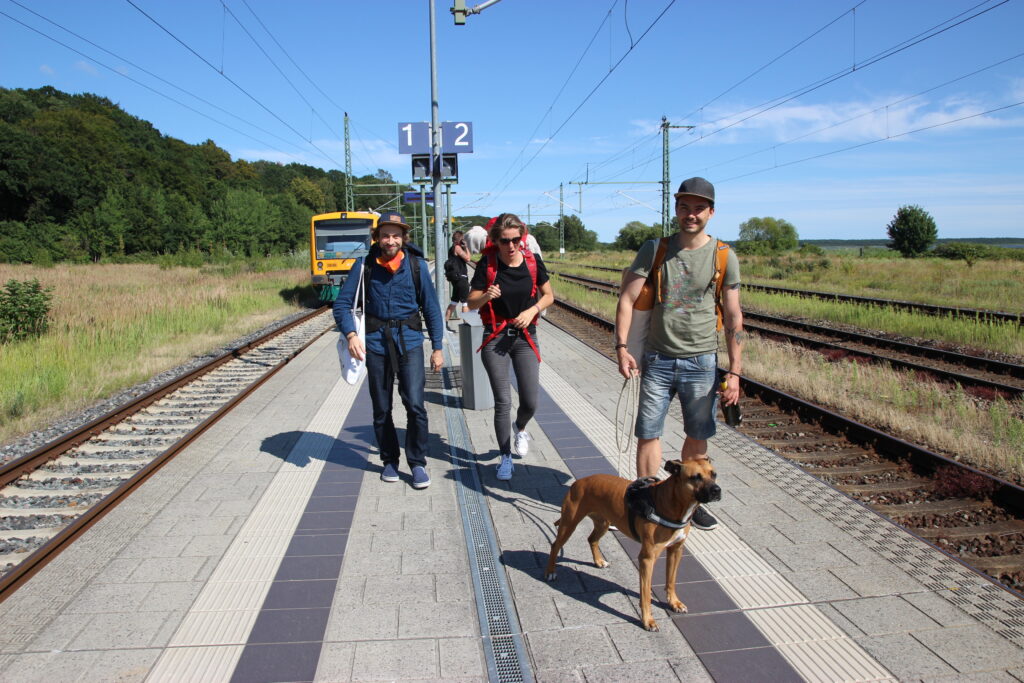


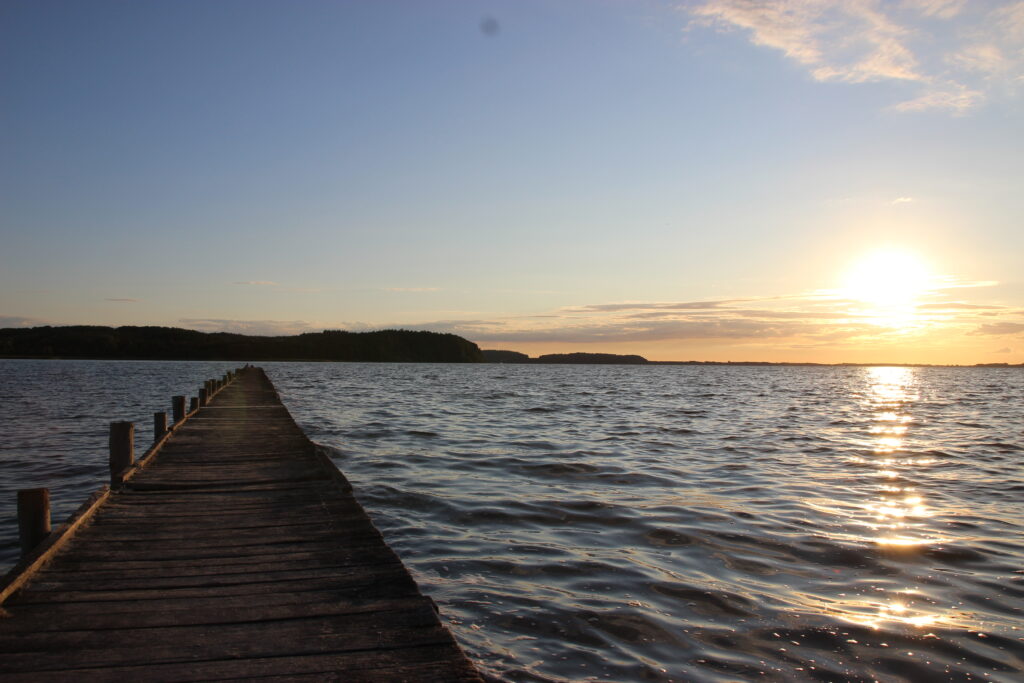


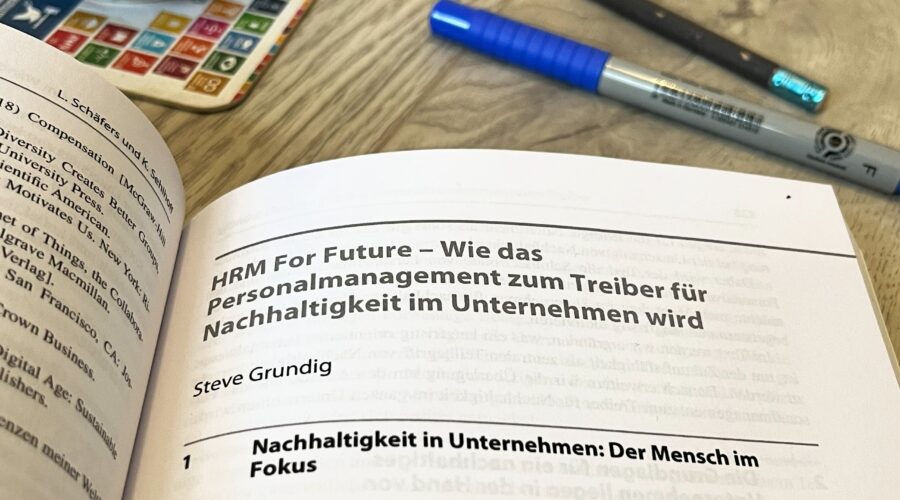
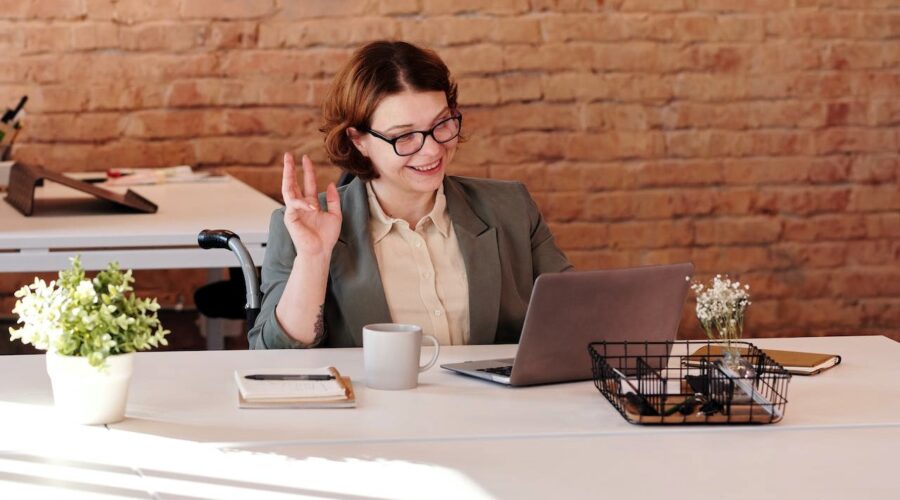
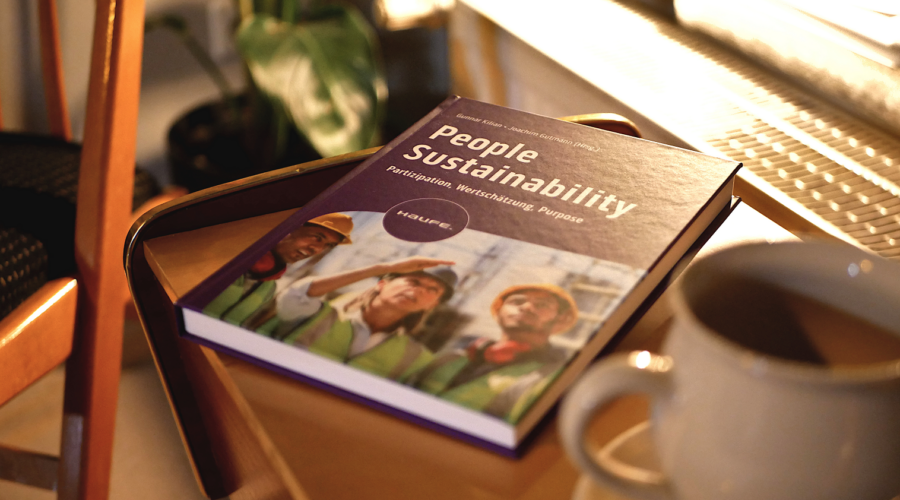

[...] to deal with. Examples here are specialist days with a training and practical component. A workation or a weekend, for example as part of a Global Goals Jam, are also possible. Here [...]